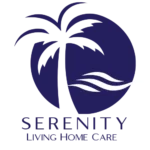How to improve immune system in older adults is a growing concern for families as they see aging parents recovering more slowly or dealing with frequent infections. These aren’t isolated issues—they reflect a natural process called immunosenescence, where immune function declines with age. Seniors often face increased vulnerability to illness and slower recovery times, making immune health a top priority.
But how to improve your immune system as you age isn’t about taking a magic supplement—it’s about daily habits, consistency, and science-backed choices. In this article, you’ll get practical wellness tips, immune-boosting foods, and the best immune system vitamins—all designed to help your loved ones stay healthy, independent, and supported. You’ll also learn how senior living communities provide the structure needed to turn these strategies into long-term immune support and a a longer, healthier life.

Key Takeaways
- Understand why the immune system weakens with age
- Learn specific ways to strengthen immunity naturally
- Discover daily habits, nutrition, and lifestyle changes that work
- Explore how senior living communities can support immune health
- Get expert-backed strategies for families and caregivers
Why Senior Immune Systems Need Special Support
As people age, the immune system naturally becomes less responsive. The body produces fewer white blood cells, and those that remain respond more slowly to viruses and bacteria. According to the Centers for Disease Control and Prevention, older adults are more likely to experience serious complications from common illnesses like the flu or pneumonia.
Chronic conditions such as diabetes, heart disease, and arthritis—which affect nearly 80% of adults over 65—place additional stress on the body’s immune defenses. Many medications used to treat these conditions may also suppress immune response. Add in social isolation, poor diet, and low physical activity, and it becomes clear why seniors need focused attention when it comes to immune support.
Understanding how to improve immune system in older adults starts by recognizing this isn’t a single-issue challenge. It’s about a collection of small, consistent lifestyle choices—wellness tips, daily routines, and smart nutrition—that together build a stronger, more resilient body.
Best Daily Habits to Improve Immune System in Older Adults
Stay Active with Safe, Senior-Friendly Exercises
Movement stimulates immune function by improving circulation and lowering inflammation. Seniors don’t need intense workouts—gentle exercises like walking, stretching, or chair yoga can work wonders. In senior living communities, these activities are adapted to residents’ needs and often guided by trained staff.
Regular physical activity is one of the most effective ways to build up immune system strength and contributes to a healthy life overall.
Prioritize Quality Sleep Every Night
Sleep is the body’s repair system. Seniors often face sleep challenges due to pain, medications, or anxiety, yet sleep deprivation is directly linked to weaker immunity.
Senior living environments support better sleep with calming routines, quiet spaces, and consistent bedtimes that help increase your immune system function.
Practice Social Connection and Meaningful Hobbies
Emotional well-being is deeply connected to immune health. Seniors who stay engaged through social and creative activities experience less stress, reduced depression, and better immune response.
Group games, gardening, storytelling, and music aren’t just fun—they’re powerful wellness tips that support long-term health and reduce feelings of isolation.
Hydrate Constantly to Keep the Body Defended
Mild dehydration is common in seniors and often overlooked. Proper hydration helps transport nutrients, regulate temperature, and support immune cell function.
Water, herbal teas, and foods for immune system hydration like watermelon and cucumbers make it easier to stay hydrated throughout the day.
Keep Living Spaces Clean and Safe
Cleanliness plays a critical role in infection prevention. Seniors with weakened immunity are more vulnerable to harmful bacteria and viruses. In senior living communities, staff help with daily hygiene routines and keep common areas sanitized.
These measures are part of how to improve your immune system by limiting exposure to avoidable health risks.
Best Foods for Immune System Support in Older Adults
Nutrition is one of the most powerful tools in how to improve immune system in older adults. A well-balanced diet—rich in vitamins, fiber, and antioxidants—helps stimulate immune cell production, reduce inflammation, and defend the body against infection.
Here are immune-friendly foods to include regularly:
- Citrus fruits (oranges, lemons, grapefruits) – A vitamin C powerhouse that helps fight infections
- Leafy greens (spinach, kale) – Packed with vitamins A, C, and E for cell repair
- Lean proteins (chicken, tofu, fish) – Critical for white blood cell creation and strength
- Nuts & seeds – Provide zinc and healthy fats that help regulate the immune system
- Fermented foods (yogurt, kefir, kimchi) – Rich in probiotics that improve gut health, a key player in immunity
In senior living environments, meals are carefully planned by dietitians to include these foods for immune system support. This ensures that residents not only enjoy tasty meals, but also receive the best immune support consistently—without the burden of meal prep or grocery shopping.
Best Fruits That Boost Immune System for Seniors
Incorporating a variety of fruits that boost immune system response into daily meals can lead to real, measurable improvements in overall health. Whether served fresh, blended in smoothies, or added to breakfast or dessert, these fruits help fuel the body’s defenses in a way that feels effortless and enjoyable.
- Vitamin C-Rich Fruits
Oranges, strawberries, kiwi, and papaya stimulate white blood cell production. These are some of the most accessible and effective foods for immune system defense.
- Antioxidant Fruits
Blueberries, blackberries, and grapes contain compounds that protect immune cells from free radicals, supporting the best immune support at a cellular level.
- Green and Hydrating Fruits
Green apples, grapes, and melons support hydration and digestion—two important elements of immune health. These fruits are easy to serve and enjoy daily.
Registered dietitians in senior communities ensure residents receive a diverse rotation of these fruits through meals and snacks.
Top Immune Support Supplements and Vitamins for Older Adults
When diet alone isn’t enough, the right supplements can make a big difference. Knowing the best immune system vitamins is essential to understanding how to improve immune system in older adults—especially when it comes to staying strong, energized, and protected year-round. These targeted nutrients offer real, reliable immune support for aging bodies.
- Vitamin D: Crucial for regulating the immune system. Seniors often have low levels due to limited sun exposure. Supplementing is common and effective.
- Vitamin C: Enhances white blood cell function. Whether through fresh fruit or supplements, it’s key in any how to improve your immune system plan.
- Zinc: Supports healing and immune defense. It’s often included in multivitamins or added to fortified foods in senior diets.
- Vitamin B6: Helps biochemical reactions in the immune response. Found in bananas, chicken, and cereals—frequently served in senior meal plans.
- Probiotics: Gut health equals immune strength. Probiotics from yogurt and fermented foods are daily staples that naturally increase your immune system.
In senior living, supplement intake is monitored and coordinated with medical professionals, ensuring safety and consistency.
How Emotional Wellness Impacts Immunity in Seniors
Mental and emotional stress can significantly weaken the immune system. Elevated cortisol levels—caused by loneliness, grief, or fear—suppress the body’s ability to produce white blood cells, making it harder to fight off illness.
That’s why emotional wellness must be part of any plan for how to improve your immune system in older adults. Seniors who live alone or lack regular interaction may unknowingly carry chronic stress that directly affects their physical health. Senior living communities help prevent this by integrating structured emotional support through daily interactions, social activities, group engagement, and access to mental health professionals. These efforts offer residents a true sense of connection, purpose, and emotional balance—key components of a strong immune system.
Incorporating these practices isn’t just about happiness—it’s a vital part of a healthy life, a longer lifespan, and consistent immune support in older adults.
Why Senior Living Communities Are Ideal for Immune Support
Caring for an older adult at home can be overwhelming—especially when trying to support their immune health consistently. It requires time, planning, medical knowledge, and emotional bandwidth. Senior living communities are built to provide this structure every single day.
Caregivers ensure residents follow daily routines that naturally build up immune system strength, including:
- Meals rich in foods for immune system support
- Guided exercise programs and routine hydration
- Emotional support through activities, companionship, and therapy access
- Medication and supplement management to avoid missed doses or unsafe combinations
Perhaps most importantly, professional staff are trained to notice small but critical signs—like fatigue, decreased appetite, or increased confusion—that may indicate a weakened immune system. Early detection often leads to faster intervention and better outcomes.
If you’re serious about how to improve immune system in older adults, senior living offers a realistic, sustainable solution. It’s not just about safety—it’s about helping your loved one enjoy more energy, resilience, and a truly healthy life.
Conclusion
How to improve immune system in older adults requires more than just supplements—it takes daily habits, emotional care, and consistent attention to overall well-being. From eating the right foods for immune system strength to maintaining hydration, reducing stress, and getting quality sleep, every element contributes to stronger immunity. These are not luxury practices—they’re essential steps toward a more healthy life and better aging.
If you’re looking for a residence where your loved one can follow daily routines that naturally strengthen the immune system—through nutritious meals, meaningful engagement, and personalized support—contact us to schedule a tour. Our senior living home in Palm Beach Gardens is dedicated to promoting wellness and long-term health in older adults.
Frequently Asked Questions About How to Improve Immune System in Older Adults
How to increase immunity in older adults?
Focus on daily habits like eating nutritious foods, staying hydrated, exercising gently, getting quality sleep, and managing stress.
How to make the immune system stronger?
A stronger immune system comes from consistent healthy routines—balanced meals, supplements like Vitamin C and D, and regular social engagement.
What nutrients help maximize the immune system in the elderly?
Key nutrients include Vitamin C, Vitamin D, Zinc, Vitamin B6, and probiotics for gut health.
How to recover from a weak immune system?
Start with rest, hydration, immune-boosting foods, and guidance from a healthcare provider. Consistency is key to rebuilding strength.
What causes a low immune system in the elderly?
Aging, chronic health conditions, poor nutrition, stress, and inactivity can all contribute to a weakened immune response.

